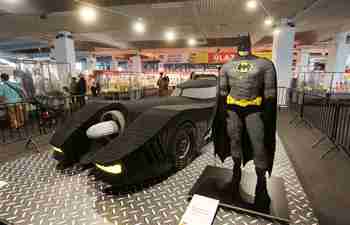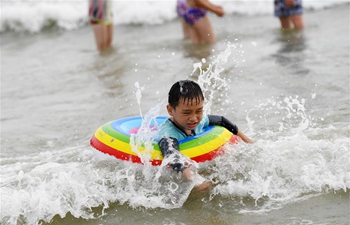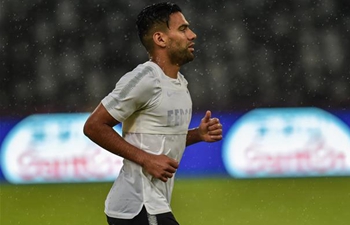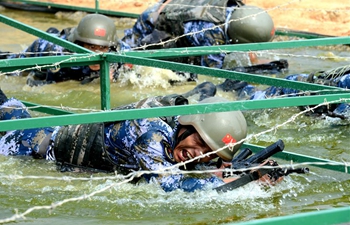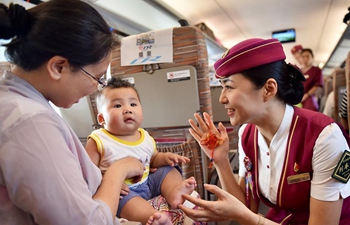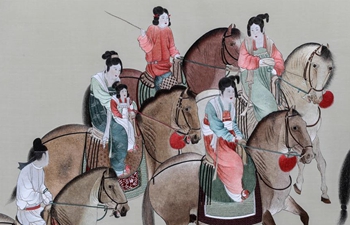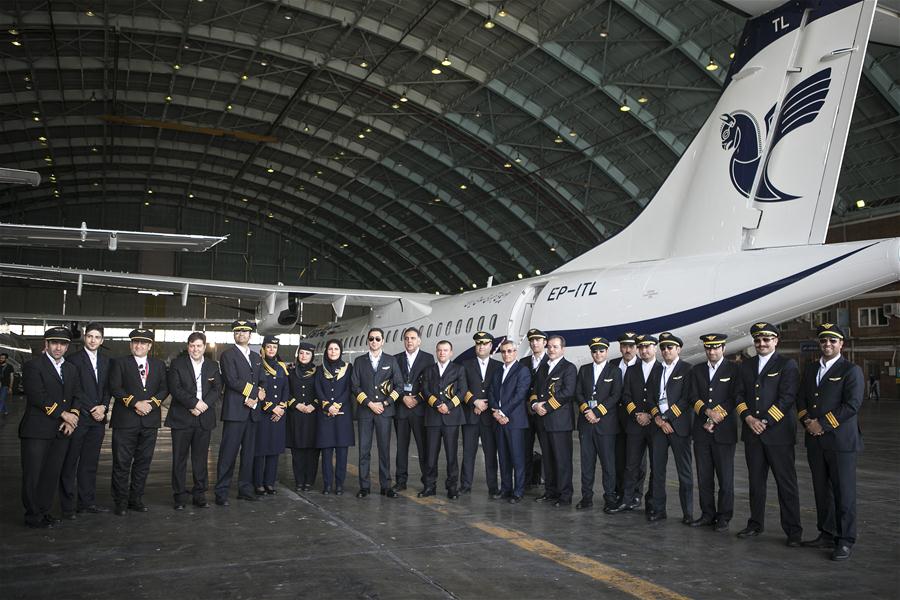
Crew members of Iran Air pose for group photo beside an ATR 72-600 at Mehrabad airport in Tehran, Iran, on Aug. 5, 2018. The French-Italian aircraft manufacturer ATR delivered five more turboprops to Iran on Sunday, official IRNA news agency reported. The ATR 72-600 passenger planes landed at Tehran's international Mehrabad airport on Sunday morning, a day before the United States reimposed the first round of sanctions on Iran. (Xinhua/Ahmad Halabisaz)
TEHRAN, Aug. 5 (Xinhua) -- Delivery of five ATR 72-600 passenger aircraft to Iran is a positive step by the European Union to fulfil its obligations subject to the bilateral deals signed in the aftermath of the 2015 international nuclear accord, an Iranian minister said on Sunday.
The French-Italian aircraft manufacturer ATR delivered five more turboprops to Iran on Sunday, official IRNA news agency reported.
The ATR 72-600 passenger planes landed at Tehran's international Mehrabad airport on Sunday morning, a day before the United States reimposed the first round of sanctions on Iran.
Abbas Akhoundi, Iranian minister of road and urban development, expressed hope that Iran's cooperation with European countries, as well as with China, Russia, India, Turkey and neighboring states, will help Iran tackle the existing difficult situation due to the U.S. sanction threats.
The world is facing challenges that U.S. President Donald Trump has brought about, but it is important to know how to act under such conditions to remain unaffected, said Akhoundi at the receiving ceremony of the ATR planes.
Besides, Farzaneh Sharafbafi, head of Iran Air airline, said the procedure is underway to receive remaining ATR planes.
Despite the U.S. deadline for European and its own companies to cut their relations with Iran, "we managed to secure the delivery of (part of) the remaining ATRs through negotiations with French and Italian officials," Sharafbafi said.
The EU can resist U.S. pressures if it wants to, Sharafbafi added.
Also, Iran Air announced that flight licenses have been issued for the ATR passenger planes to join Iran's air fleet.
In April 2017, Iran Air signed a contract with ATR to purchase 20 short-haul passenger jets worth 576 million U.S. dollars. Iran had already received eight ATR 72-600 aircraft and deployed them in domestic flights.
After Trump's withdrawal from the Iranian nuclear agreement, also known as the Joint Comprehensive Plan of Action (JCPOA), in May, Washington has been trying to bring sanctions back on Iran with the aim of blocking Iran's international financial transaction and reducing its oil exports to zero.
Under the JCPOA, Iran agrees to put limits on its nuclear program in exchange for the removal of nuclear-related sanctions imposed on Tehran.
U.S. sanctions on Iran will snap back in August and November.
The first part of the sanctions will be reimposed on Aug. 6, including sanctions on Iran's automotive sector, trade in gold, and other key metals.
The remaining sanctions will return on Nov. 4, which will include those targeting Iran's energy sector and petroleum-related transactions, and transactions with the Central Bank of Iran.
Since Trump pulled Washington out of the nuclear deal, European countries have been scrambling to ensure that Iran gets enough economic benefits to persuade it to stay in the deal.
Last week, French Finance Minister Bruno Le Maire said he was "hopeful" that ATR would get permission from the United States to deliver eight regional planes to Iran before Aug. 6.
"I am hopeful that the United States will give us permission to deliver these ATRs," Le Maire said.
"There were eight to be delivered before Aug. 6," he added, highlighting the "significant share" of the order for ATR's turnover.
According to Press TV, Iran has also signed agreements with global aviation giants Airbus and Boeing for the purchase of scores of planes in 2016.
Airbus has already delivered three planes to Iran but Boeing made no deliveries as speculations emerged over the past few months that U.S. sanctions would obstruct the deals with Iran.
The remaining parties to the JCPOA have vowed to stay in the accord, a multilateral agreement jointly negotiated and signed between Iran and six powers, Russia, the United States, Britain, China, France and Germany.





